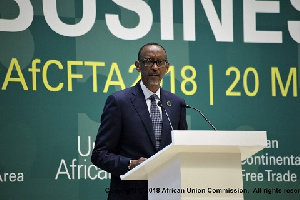Investments in construction, real estate, and manufacturing sectors are leading the path to economic recovery in Rwanda as the country seeks to reverse the negative effect of the coronavirus pandemic.
The country recorded investments worth $3.7 billion in 2021 up from $1.3 billion in 2020.
The three sectors contributed up to 72 percent of all investments registered, with construction accounting for 31 percent, Real Estate 26 percent, and manufacturing (including agro-processing) contributing 15 percent, according to Rwanda Development Board (RDB) numbers released this week.
As the pandemic took hold in the country in early 2020, many large and small investors injected their capital into construction, with most of these investments in Kigali, leaving the city with a number of new commercial buildings, real estate, and office buildings.
When the country went into lockdowns to slow the spread of COVID-19 and business was rendered inactive, many of the people who owned commercial buildings used this time to renovate, expand or remodel their buildings.
The majority used their savings while others took loans to invest in these developments, which has not only created jobs but also kept the economy afloat as money exchanged hands in purchasing construction materials, many of which are sourced locally.
The development trend accelerated in 2021 as the pandemic thawed and business supply chains began to recover.
The growth of investments in the three sectors is attributed to the Manufacture and Build to recover program that provides tax incentives to investors, complemented by fiscal and non-fiscal incentives.
Some of the biggest investments registered in 2021 include $237.9 million by Ultimate Developers Ltd for the development of Vision City Phase Two; $145.9 million investment by Rwanda Ultimate Golf Course Ltd into the Kigali Golf Resort and Villa Project; $20.7 million powdered milk project, and $22.5 million by Global Electric Vehicle Ltd to manufacture Electric Vehicles, according to RDB.
Other sectors that attracted significant investment are financial and insurance services, agriculture, accommodation and food services, energy, health, and ICT, which point to how attractive the Rwandan economy remained to investors despite the virus-induced setbacks.
In what is regarded as the highest investment registration to date, these new investment projects are expected to create 48,669 jobs – representing a 97 percent increase from 2020.
Government has a target of creating 214,000 new jobs from investments and other employment sources every year.
Despite tourism being one of the most affected sectors in the last two years, to a certain extent, the sector seems to have benefited from the Rwf100 billion ($97.6 million) Economic Recovery Fund.
Tourism revenues are reported to have increased by 25 percent in 2021, from $131 million in 2020 to $164 million in 2021, with the MICE sector generating $12.5 million in 2021 compared to $5.4 million in 2020.
Total visitor arrivals increased by 2.8 percent, from 490,000 in 2020 to 512,000 in 2021, with the sports events hosted during this period boosting visitor arrivals and revenues.
 Home Of Ghana News Ghana News, Entertainment And More
Home Of Ghana News Ghana News, Entertainment And More





